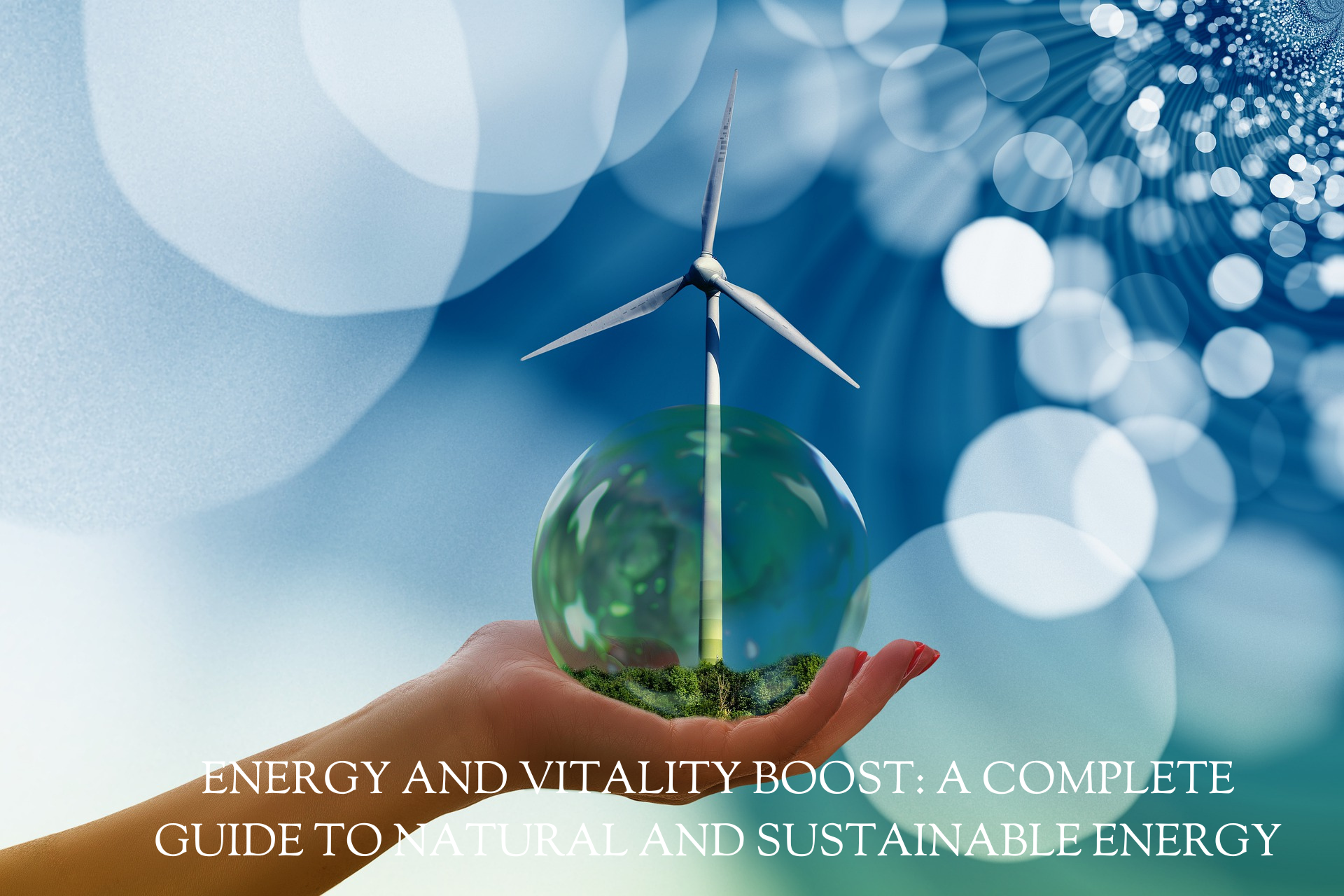In today’s fast-paced world, feeling drained and low on energy has become increasingly common. If you find yourself frequently tired or unable to maintain focus, you’re not alone. However, the good news is that there are natural, effective ways to boost energy and vitality, helping you feel more alert and energized throughout the day.
The Science Behind Energy and Vitality
To understand how to boost energy, it’s important to first grasp the science behind it. Our body’s primary energy currency is adenosine triphosphate (ATP), produced in our cells through metabolism. Efficient energy production depends on factors like diet, exercise, and sleep.
The Role of ATP in Energy Production
ATP is essential for nearly all cellular functions. It powers muscle contraction, nerve impulses, and even digestion. When ATP production is slow or inefficient, you feel lethargic. Maximizing your body’s ability to produce ATP is key to maintaining energy throughout the day.
How Metabolism Impacts Energy Levels
Your metabolism converts food into energy, and a well-functioning metabolic system ensures that your body can generate energy efficiently. People with slow metabolisms often experience chronic fatigue, which can be improved through nutrition and exercise.
Common Causes of Low Energy and Fatigue
Low energy levels can be caused by several factors. Here are some of the most common:
Poor Diet and Nutrient Deficiencies
Without the right balance of nutrients, your body can’t produce the energy it needs. Nutrient deficiencies in vitamins such as B12, iron, or magnesium can lead to persistent tiredness.
Lack of Physical Activity
A sedentary lifestyle weakens muscles and reduces endurance, leading to quicker fatigue during daily activities. Regular exercise increases energy levels by improving cardiovascular health and muscle strength.
Stress and Mental Fatigue
Chronic stress can deplete your energy reserves. Mental fatigue from constant worry or overthinking can leave you feeling as physically exhausted as a tough workout.
The Role of Nutrition in Boosting Energy
The food we consume directly affects how energetic we feel. Certain foods are rich in nutrients that enhance vitality.
Essential Nutrients for Energy Production
B-vitamins, magnesium, and iron are critical for energy production. B-vitamins help your body convert food into energy, while iron is essential for carrying oxygen in the blood, ensuring that muscles and organs function optimally.
Foods That Naturally Increase Energy
Incorporating energy-boosting foods into your diet can make a world of difference.
Complex Carbohydrates
These provide a steady source of energy. Whole grains, oatmeal, and brown rice are excellent examples of complex carbs that prevent energy crashes.
Lean Proteins
Foods like chicken, fish, and legumes are rich in protein, helping to repair tissues and build muscle, both of which are vital for sustained energy.
Healthy Fats
Fats, such as those from avocados and nuts, are long-term energy sources, keeping you fueled for hours after a meal.
The Power of Exercise for Enhancing Vitality
Exercise is a powerful way to boost both your energy and your mood. It may seem counterintuitive, but physical activity increases energy by boosting circulation and oxygen flow to cells.
Types of Exercises that Boost Vitality
Aerobic Exercise
Activities like walking, jogging, and cycling improve cardiovascular health, making it easier for your body to transport oxygen and nutrients to your muscles.
Strength Training
Lifting weights or bodyweight exercises like push-ups build muscle, enhancing your overall stamina.
Yoga and Stretching
These forms of exercise reduce stress while improving flexibility and circulation, leading to more balanced energy levels.
The Role of Mental Health in Maintaining Vitality
How Stress Reduces Energy
When stressed, your body releases cortisol, a hormone that puts your system in “fight or flight” mode. Over time, chronic stress exhausts the body, draining your energy reserves.
Techniques for Reducing Stress
Practices like deep breathing, mindfulness, and spending time in nature help lower cortisol levels, restoring your energy balance.
The Importance of Quality Sleep
Poor sleep is a significant contributor to low energy levels. Without enough sleep, your body can’t restore itself.
The Connection Between Sleep and Energy
During sleep, your body repairs tissues and consolidates memories, which helps you wake up feeling refreshed.
Tips for Improving Sleep Quality
Creating a relaxing bedtime routine, limiting caffeine intake, and keeping a consistent sleep schedule can significantly improve sleep quality.
Natural Supplements to Boost Energy and Vitality
While supplements should not replace a healthy lifestyle, certain vitamins and herbs can complement your efforts.
Common Energy-Boosting Supplements
B-Vitamins
These are vital for energy metabolism. A B-complex supplement can help if you’re not getting enough from food.
Magnesium
Magnesium plays a critical role in muscle function and energy production. Low levels can lead to fatigue.
Adaptogens
Herbs like ashwagandha and rhodiola help the body adapt to stress, reducing fatigue and improving mental clarity.
Creating a Daily Routine to Maximize Energy
Establishing daily habits to support your energy levels is essential. A well-structured routine can keep your vitality high throughout the day.
Morning Routines for a Vitality Boost
Start your day with hydration, a healthy breakfast, and a short exercise session to wake up your body and mind.
Midday Energy Slumps and How to Beat Them
Avoid heavy lunches that lead to energy crashes. Instead, opt for light, balanced meals and consider a short walk or stretch during your break.
Evening Routines to Recharge for the Next Day
Wind down with relaxing activities like reading or meditation. Avoid screens an hour before bed to ensure a restful night.
Conclusion
Boosting energy and vitality is a multifaceted process involving a combination of good nutrition, exercise, mental health, and sleep hygiene. By taking a holistic approach and integrating these habits into your daily life, you can maintain higher energy levels and improve your overall sense of vitality.
FAQs
1. What foods should I avoid to maintain energy?
Avoid highly processed foods, sugary snacks, and excessive caffeine, as they can lead to energy crashes.
2. How does caffeine affect energy and vitality?
Caffeine provides a temporary boost but can lead to energy dips later. Moderation is key.
3. Are there any side effects to taking energy-boosting supplements?
While generally safe, some supplements can cause side effects, especially if taken in excess. Always consult a healthcare professional before starting new supplements.
4. How long does it take to notice improvements in energy after lifestyle changes?
You may start to notice changes within a few days to weeks, depending on the specific changes and your body’s response.
5. Can energy levels fluctuate with age?
Yes, as we age, energy levels can fluctuate due to hormonal changes, but adopting a healthy lifestyle can mitigate these effects.

